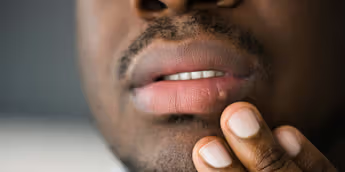10 things you didn’t know about herpes but should


The more you know about herpes, the better equipped you are to manage it.
Herpes. The word itself can spark up feelings of fear, shame, and confusion. It’s a common sexually transmitted infection (STI), but there’s a lot of misinformation floating around, and there’s a lot you might not know about it.
Let’s clear the air and educate you about some facts you might not know about herpes, but absolutely should:
1. There are two main types of herpes
Most people associate herpes with cold sores, but there are two main types:
Herpes simplex virus type 1 (HSV-1): This is the most common type and typically causes cold sores around the mouth.
Herpes simplex virus type 2 (HSV-2): This type is usually responsible for genital herpes, causing outbreaks with blisters or sores on the genitals and buttocks.
2. You can have herpes without knowing it
One surprising fact about herpes is that many people who have it don’t experience any symptoms.
3. Herpes isn’t a death sentence
While herpes can be uncomfortable during outbreaks, it’s not a life-threatening condition. There’s no cure, but effective medications can manage outbreaks and reduce the risk of transmission. With proper management, most people with herpes live healthy and fulfilling lives.
4. You can still have a normal sex life with herpes
Having herpes doesn’t have to put your sex life on hold. Open and honest communication with your partner is key. There are steps you can take to reduce the risk of transmission, such as using condoms during outbreaks and avoiding sexual contact when symptoms are present.
5. It’s not just spread through sex
While HSV-2 is primarily spread through sexual contact, HSV-1 can also be spread through non-sexual contact, like sharing utensils or kissing someone with a cold sore. Maintaining good hygiene practices can help prevent the spread of HSV-1.
6. There’s no shame in having herpes
Herpes is a very common STI. Millions of people worldwide have it. Feeling ashamed or embarrassed can prevent you from seeking the information and support you need.
7. There’s a difference between outbreak and shedding
An outbreak is when you have visible symptoms like blisters or sores. Shedding, on the other hand, is when the virus is present on your skin or genitals even without visible symptoms. This is why it’s important to practice safe sex even when you’re not experiencing an outbreak.
8. Medication can help manage outbreaks
Antiviral medications can’t cure herpes, but they can significantly reduce the frequency, severity, and duration of outbreaks.
Taking medication can also help reduce the risk of transmission to your partner.
9. Condoms help, but don’t guarantee protection
While condoms significantly reduce the risk of herpes transmission, they don’t cover everything. Since herpes can be spread through skin-to-skin contact, areas not protected by the condom can still transmit the virus.
10. Herpes doesn’t increase your risk of HIV/AIDS
This is a common misconception. While herpes is an STI, it doesn’t weaken your immune system in the same way HIV does. However, having a sore or broken skin from an outbreak can increase the risk of contracting or transmitting HIV during sex.
Herpes is a manageable condition. By educating yourself, talking openly with your doctor and partners, and practising safe sex, you can take control of your health and maintain a happy, healthy life.




